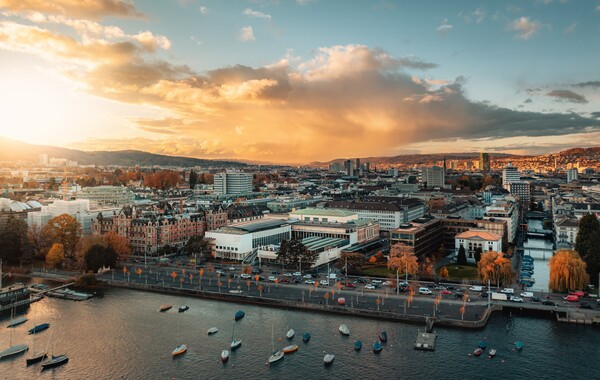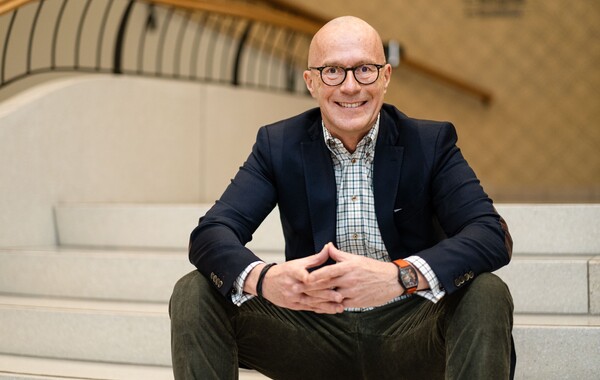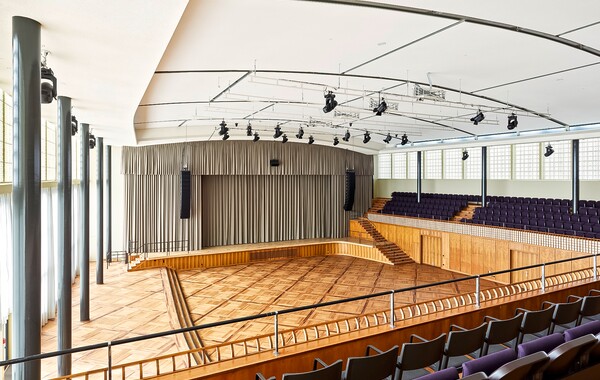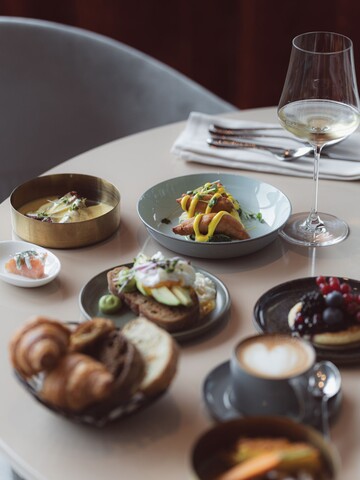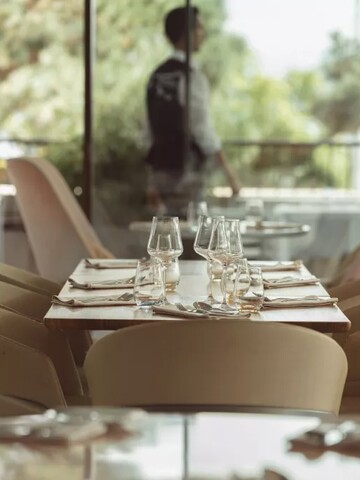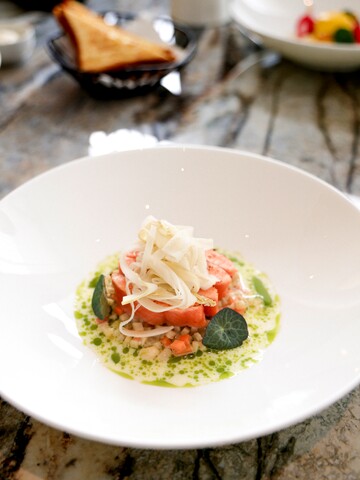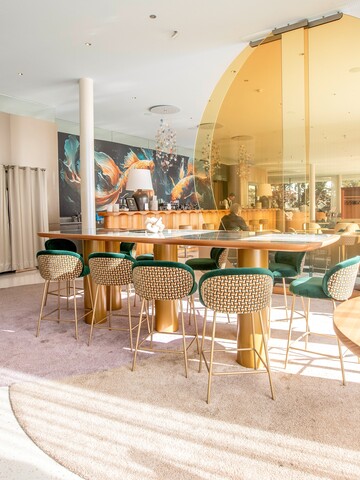Between pleasure and reason: sustainability at Restaurant LUX
The potential for greater sustainability in the hospitality industry has not yet been fully exploited. One of the reasons for this is the complex implementation - but the communication challenges also play a major role. Find out how LUX Restauran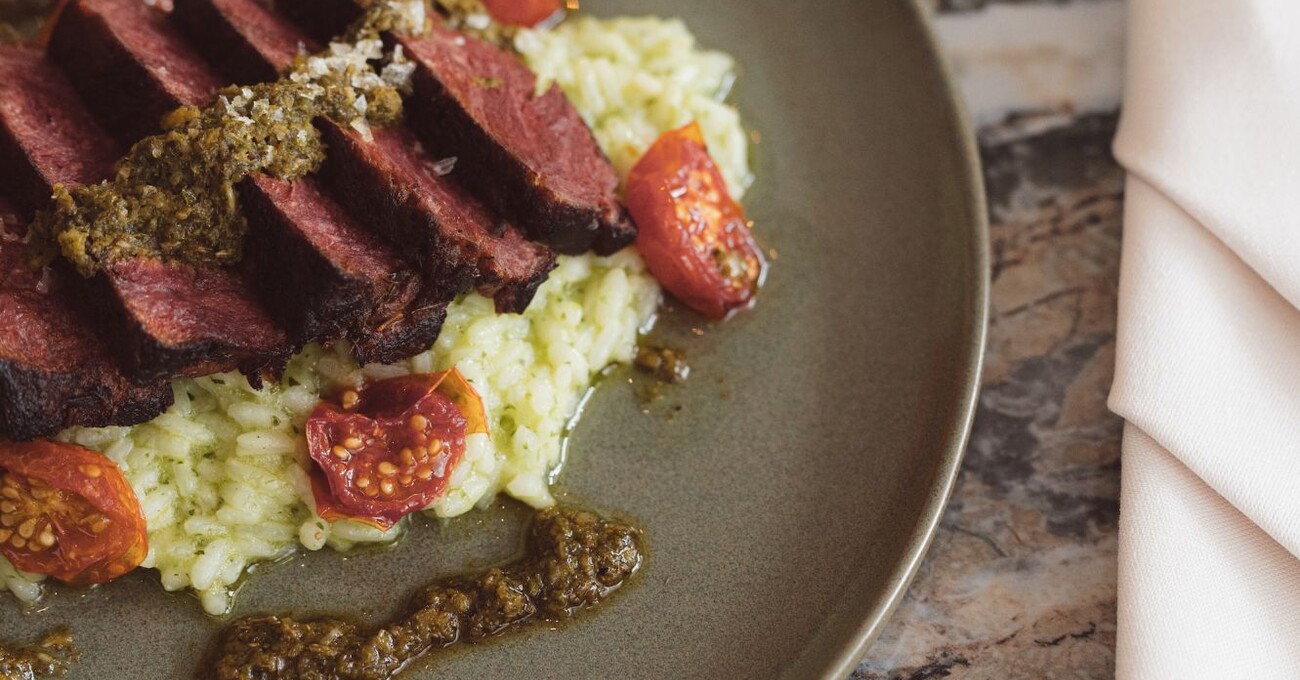
What are you interested in when you consume animal products in a restaurant?
For a few years now, many people have been saying: the origin of the products. And that's what the declaration requirement is for today. But a lot has happened since then, which is why the declaration of product origin often falls a little short. In other words, just because it says "Switzerland" doesn't mean that the products are produced fairly and sustainably.
Shrimps from Vietnam
"Our shrimps, for example, come from Vietnam," says Giedo Veenstra, Chief Culinary Officer at Zurich Convention Center and responsible for the LUX strategy. "After extensive testing and many comparisons, it turned out to be the most sustainable product for people, nature and animals." This is because the animals are bred without additional feeding or medication in a mangrove aquaculture that requires hardly any infrastructure and thus blends seamlessly into the natural environment.
Of course, none of this resonates with a declaration of origin "from Vietnam" and it shows how complex the topic of sustainability in gastronomy is - especially when it comes to the right communication. How much must, how much should you explain so that guests feel neither over- nor under-informed? How can you do this in such a way that they still have a choice? In short: How can you explain why you are offering shrimps from Vietnam? And should you explain it at all?
Transparency and voluntariness
With the QR code on the menu, LUX has recently started offering guests the opportunity to find out about sustainability - and more. The allergens, energy values and, in the case of meat and fish, the origin and CO2 emissions of a dish are displayed. If you don't want to know, you don't have to deal with it. "We want to inspire our guests, but not patronize them," says Giedo Veenstra. This also includes the distinctive range of main courses that do not require meat or fish: If you don't want to go without, you don't have to. After all, eating out is a luxury that many people, even those who eat very consciously, like to indulge in. However, these dishes are intended to show that it doesn't actually have to be meat or fish if you want to "treat yourself" to something. It is estimated that up to 50% of meat consumption takes place in the food service industry: So this is a huge lever for more sustainability.
CO2 emissions of a dish
But how do you actually determine the CO2 emissions of a dish? There are platforms that calculate this based on the list of ingredients. This is an average value: the actual CO2 emissions naturally also depend on how locally the ingredients were produced or whether they are in season. For this reason, LUX also takes care to buy seasonal and local produce wherever possible, so that the effective CO2 emissions are lower than the stated value. In addition, preference is given to meat from open livestock farming and fish from sustainable fishing or certified aquacultures. "We work with the Eaternity platform, which is also recommended by Gastro Stadt Zürich. The topic is now becoming more important in gastronomy, the potential has been recognized," says Giedo Veenstra.
The small levers
Apart from these large and obvious levers, LUX is constantly working on the topic of sustainability and is also aware of the small levers. For example, only wine from Europe is offered. The variety of wines is sufficiently wide and the delivery distances are comparatively short.
The crew at your back
"Our crew is proud of our attitude and contributes to it - we have mainly young people in the team: they attach great importance to sustainability and contribute ideas that we test and often implement. What we don't want, however, are approaches that sound good at first glance but have little or perhaps even the opposite effect," says Giedo Veenstra. "But that's exactly what sustainability means: It's not done with fine words. We focus on the essentials so that we can offer our guests meaningful options. We are of course delighted when they notice and appreciate this."
Weitere Storys & News
